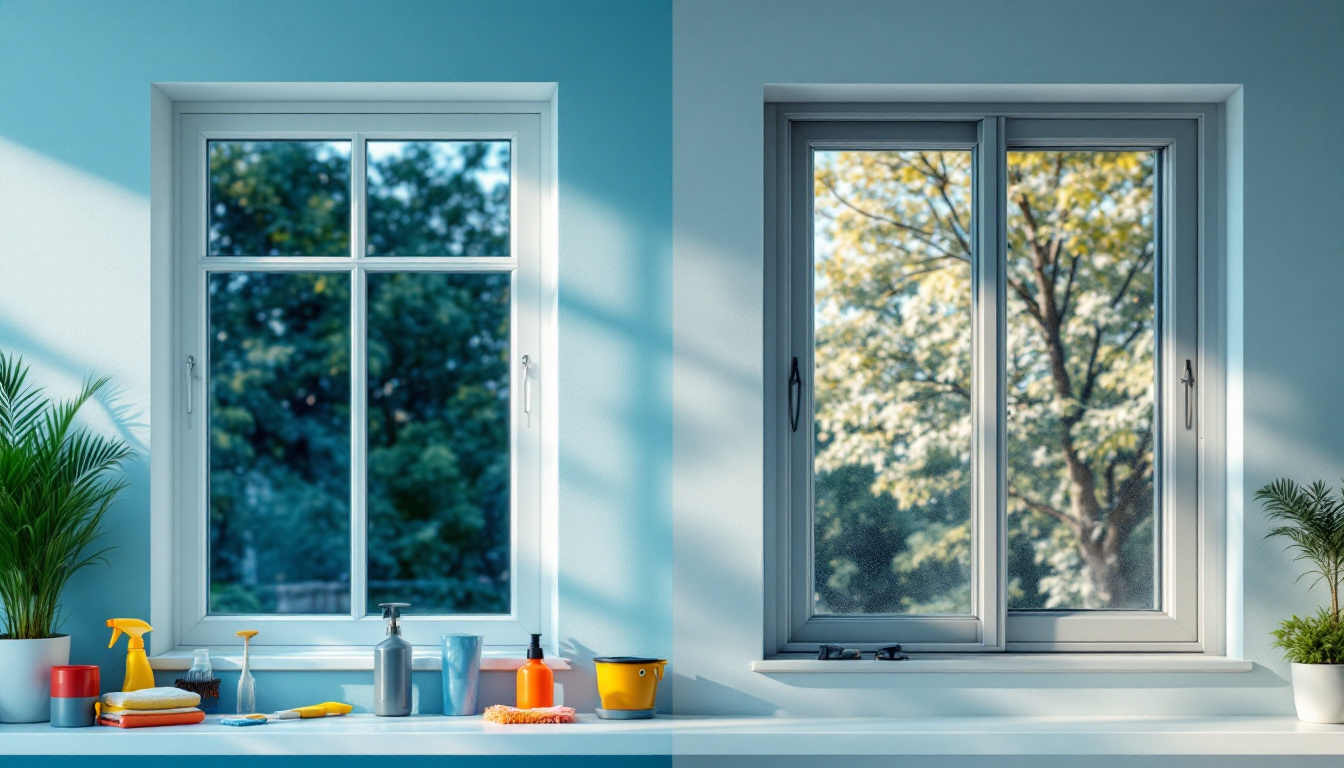When it comes to choosing the right windows for your home, understanding the differences between casement and sliding windows is crucial. Both styles offer unique benefits and challenges, particularly in terms of ease of use and maintenance. This article will explore these two popular window types, helping you make an informed decision that enhances your home’s comfort, beauty, and efficiency.
Understanding Casement Windows
Casement windows are hinged on one side and open outward, typically operated by a crank mechanism. This design allows for maximum ventilation and unobstructed views, making them a popular choice for many homeowners.
Advantages of Casement Windows
Casement windows come with several advantages that make them appealing for residential use:
- Enhanced Ventilation: The outward opening design allows for better airflow, making them ideal for areas that require fresh air circulation.
- Energy Efficiency: When closed, casement windows create a tight seal, reducing air leakage and improving energy efficiency.
- Unobstructed Views: With no central frame blocking the view, casement windows provide a clear line of sight to the outdoors.
Maintenance Considerations
While casement windows offer numerous benefits, they also require specific maintenance practices:
- Regular Cleaning: The exterior and interior surfaces should be cleaned regularly to prevent dirt buildup and maintain aesthetics.
- Crank Mechanism Care: The crank mechanism should be lubricated periodically to ensure smooth operation and prevent wear.
- Weatherstripping Inspection: Regularly check the weatherstripping for wear and tear, replacing it as necessary to maintain energy efficiency.
Exploring Sliding Windows
Sliding windows, also known as gliding windows, operate by sliding horizontally along a track. This design is particularly popular in modern homes due to its sleek appearance and ease of use.
Advantages of Sliding Windows
Sliding windows offer several benefits that make them a practical choice for homeowners:
- Space-Saving Design: Since they slide open rather than swing outward, sliding windows are ideal for areas with limited space.
- Ease of Operation: The simple sliding mechanism makes them easy to open and close, even for children and the elderly.
- Low Maintenance: With fewer moving parts than casement windows, sliding windows generally require less maintenance.
Maintenance Considerations
Although sliding windows are low maintenance, they still require some attention to ensure longevity:
- Track Cleaning: Regularly clean the tracks to prevent dirt and debris from obstructing the sliding mechanism.
- Seal Inspection: Check the seals around the window for any signs of wear or damage, replacing them as needed to maintain energy efficiency.
- Glass Care: Clean the glass surfaces with appropriate cleaners to maintain clarity and prevent scratches.
Comparing Ease of Use
When it comes to ease of use, both casement and sliding windows have their strengths:
Casement Windows
Casement windows require a crank to open, which can be a slight inconvenience compared to sliding windows. However, their ability to open fully allows for maximum ventilation, making them a great choice for areas that need fresh air.
Sliding Windows
Sliding windows excel in ease of operation, as they can be opened with a simple push. This makes them particularly user-friendly, especially for individuals with mobility challenges.
Comparing Maintenance Requirements
Maintenance is a critical factor in the longevity and performance of your windows. Here’s how casement and sliding windows stack up:
Casement Windows
While they offer excellent energy efficiency, casement windows require more regular maintenance due to their mechanical components. Homeowners must ensure that the crank and seals are in good condition to maintain performance.
Sliding Windows
Sliding windows are generally easier to maintain, with fewer components that can wear out. Regular cleaning of the tracks and seals is usually sufficient to keep them in good working order.
Conclusion: Making the Right Choice for Your Home
Ultimately, the choice between casement and sliding windows depends on your specific needs and preferences. If you prioritize ventilation and energy efficiency, casement windows may be the better option. However, if ease of use and low maintenance are your primary concerns, sliding windows could be the ideal choice.
Whichever style you choose, investing in high-quality windows will enhance your home’s comfort, beauty, and value. For personalized guidance and expert installation, consider reaching out to a trusted window specialist in your area.
Ready to find the perfect windows for your home? At Better Window and Door, we’re here to help you make the right choice with ease. Our experts are on standby to provide you with a custom quote and answer any questions you might have about casement and sliding windows. Get a custom quote today, and let’s bring your home’s potential to life with personal attention and expertise.



